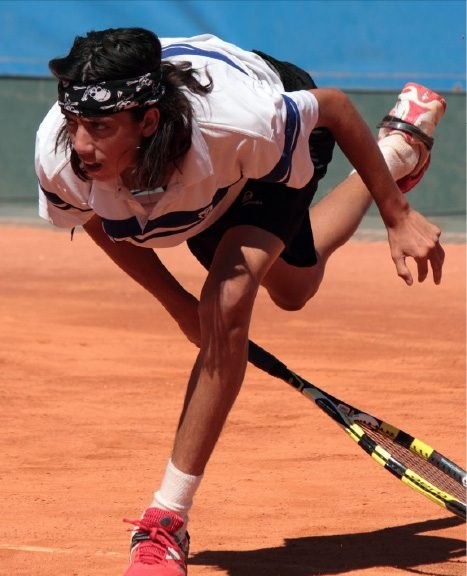Sarah Godfrey, Jan 2021
So, what now?
It seems as I look out my window at a misty Melbourne morning that even summer feels uncertain and the hot weather waiting is apprehensive and unsure it should go-ahead. Much as we all are, as we leave 2020 and look towards 2021.
What next? Many things seem unpredictable, unstable and unforeseeable. Heraclitus, a Greek philosopher, once said, “Life is Flux,” or the more modern interpretation, “Change is the only constant.” Whether it is the unexpected ups and downs of our everyday lives or the normal chaos of the human experience, what 2020 taught us is discord is the new black and we need to be ready.
Finding stability in unstable times is no small ask. The belief we have some real control over our lives has been fractured, if not shattered in the last year. Our utter humanness has exposed our incredible vulnerability and resilience, as individuals, in our workplaces and beyond. Despite this it is in our nature to need some form of equilibrium or understanding in order to function.
Purpose values can provide us with a link to building stronger resilience with which to grow and recover. As Shaefer & Co noted in their research, during times of crisis, ‘individual purpose can be a guidepost that helps people face up to uncertainties and navigate them better, and thus mitigate the damaging effects of long-term stress. People who have a strong sense of purpose tend to be more resilient and exhibit better recovery from negative events.’ (Purpose in Life).
Our resolve and intention to set a goal, move forward, cope or to process the meaning of events, creates a form of certainty in otherwise uncertain times. In my book Life Works When, Purpose is one of the five pieces of the puzzle to find Happiness. The unhappy Mo realizes he had been ‘drifting without purpose for too long [and] had not built resources or direction to help him through the hard times.’ (Life Works When)
The Purpose of Life is a Life of Purpose.
Robert Bryne said it best, the purpose of life is a life of purpose, but what is a life of purpose? 'Sometimes the goals we gravitate towards aren’t right for us. Or worse some purposeful objectives might be chosen for motivational wants defined by greed, envy and false illusions of happiness, rather than our true needs. Other times our purpose is linked to our developmental age and stage of life. When this happens, we can forget to adjust and adapt our goals to growing up, life experiences and getting older’ and as we now understand, in global crises.
‘The issue is we all need some kind of destination to push us forward and excite us to master and work towards endeavors that will be meaningful in some way. In turn, we get a sense of where we are going and why. Purpose is individual and intrinsic to our needs and wants. Having a sense of purpose gives us a balanced meaning to our existence. It allows us to allocate time and resources to goals and dreams. And dreams create passion and energy. We all need to be excited about something, no matter if that drive is to feel better, care for our well-being, imagine a better life or to invent something truly amazing. Purpose is passion. And a life without passion is an empty vision.’ (Article on Purpose)
With great disruption, as we have experienced in 2020, we can easily loose sense of ourselves and believe the direction we were travelling in is no longer relevant. But that is wrong. Purpose, in its simplest form, can improve relationships, emotional well-being, increase longevity and benefit workplaces. In fact, ‘creating strong links to an individual purpose benefits individuals and companies alike—and could be vital in managing the postpandemic uncertainties that lie ahead.’ (Purpose in crisis).
We should be encouraging senior management and c-suite teams to be mindful of what our employees need and attach purpose to, as we move towards the next new normal post COVID-19. Research has indicated that purpose can be an ‘important contributor to employee experience, which in turn is linked to higher levels of employee engagement, stronger organizational commitment, and increased feelings of well-being.’ (Purpose in crisis)
The Archetypes of Purpose.
Just having purpose is not, however, an easy pathway out of discord. The value around our purpose sets the agenda for success or failure in our workplaces. It is the learning to install a sense of purpose in ourselves, teams and organisations that is the direction we are looking for in 2021.
Let’s look at our value sets to start with because this can determine or orientate our type of purpose. For example, if you have a personal value of belonging, then professionally team development, loyalty and recognition may direct your purpose. It is what connects you with what you do and need. As leaders, our purpose is more meaningful as it shapes the culture of organisations, the connectivity of management and the productivity of employees.
A survey by the McKinsey Report (Purpose in crisis) looked into types of purpose we rate connected to our values. Analysing nine characteristics of purpose they defined three types of purpose archetypes, the ‘Freespirits, Achievers and Caregivers.’

Freespirits.
Freespirits value autonomy and respect tradition. They find meaning in situations where they can control what they do and when or how they do it. They thrive working independently and enjoy ‘stress testing’ ideas with others, goals are selected with consideration of family and cultures. Purpose blockers for Freespirits are being micromanaged, inflexibility, censorship and pressure to go against well-established practices.
Knowing if your employee gravitates towards the Freespirit type of purpose allows organisations to enhance autonomy and understand the importance of tradition and culture to these types. They find purpose in freedom within a framework.

Achievers.
Achievers, on the other hand, find their purpose in accumulating social or material resources. They find purpose in self-improvement. Achievers will need opportunities to increase earnings and status and look for fun and excitement in their tasks. They like to be the authority on topics and impress others. Their purpose blockers are if they are made to feel invisible, lack influence and become out of sync with the culture. Achievers have a fear of failure that leads to humiliation.
Leaders of achievers need to balance the purpose with the job role. Recognition is important, as is being seen and acknowledge by the group or team. Beneath this is the apprehension that failure, particular public failure will have on their well-being. Ensuring the job is varied, purpose fit for their skill level and developing professional development to succeed and challenge them, can keep an achiever satisfied and growing.
 Caregivers.
Caregivers.
The third type of purpose archetype is the Caregiver. Caregivers find purpose in selecting how and when they look after others. They are less interested in material gain or the opinion of others. Caregivers find their purpose in mentoring and supporting others in the team. They seek work-life balance, security and order. Their purpose blockers happen when they are pulled away from the team or family and friends. Isolation is not helpful in a work environment and they may struggle with any uncertainty or disorder.
Leaders can enhance the Caregiver purpose by investing in training for mentorship and providing a role that anchors them in team leadership, cultural management or workplace well-being, particularly if they are required to work off site or at home. Understanding the need for balance is important and consideration to the fact that people not performance, drives their meaning. Preparing them for options will reduce their anxiety.
These purpose archetypes can assist supporting and guiding your employees and teams forward, helping management and organisations rethink needs and offer leadership insight to plan for the post COVID business and operational future. A Caregiver leader needs an Achiever and Freespirit in their team to create balance and challenge. An Achiever CEO needs to reflect on the worth and purpose of the Caregiver and Freespirit in the C-Suite team.
Purpose as a measurable determinant of well-being in workplaces is a new, untested path forward and the research by the McKinsey report is a step towards understanding the importance of values as intrinsic to purpose and success. It challenges us to see ourselves and those around us, through a different lens.
The ‘so, what now’ question has started to find an answer. Look beyond profit margins and into people purpose. Find out who your leaders, employees and consumers are and what is their purpose. Define the meaning framework in each job and enhance the archetypal links to improve performance. One thing we do know for certain is Heraclitus was right. A life in flux is what we have, and if we find our purpose, it can be the impetus for great change, growth and prosperity.

